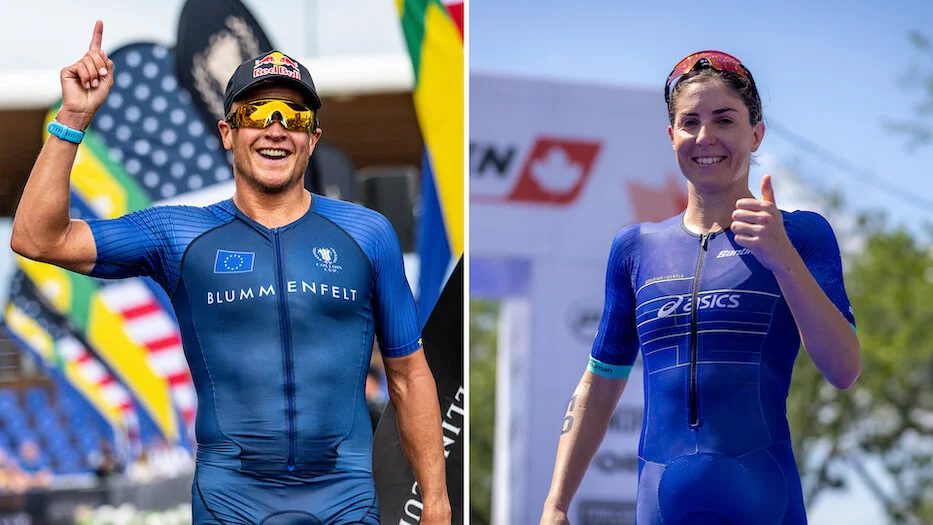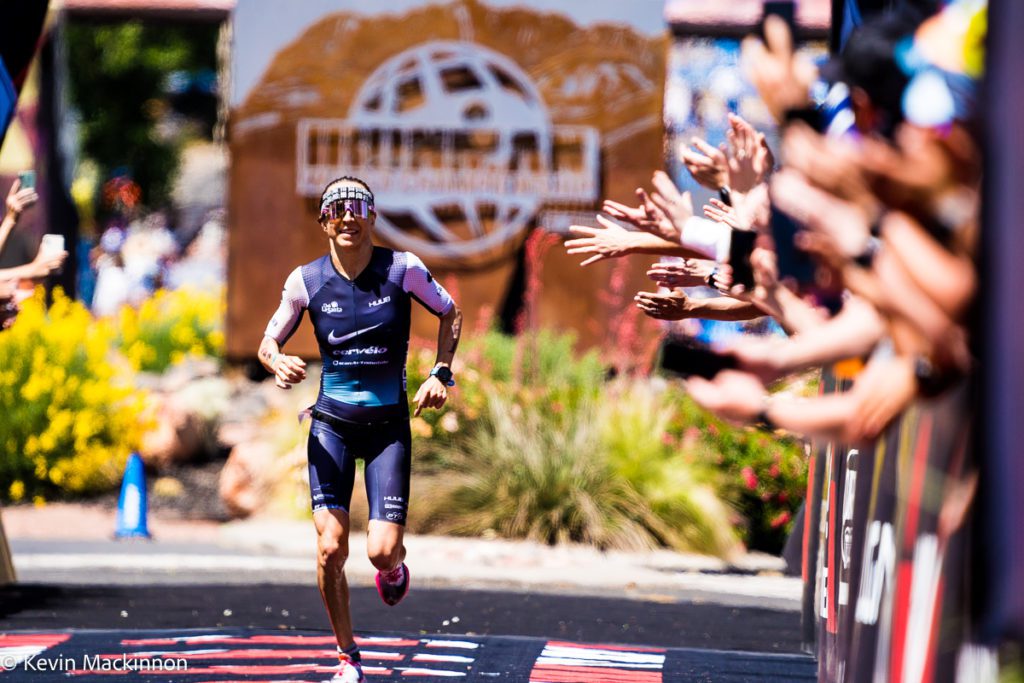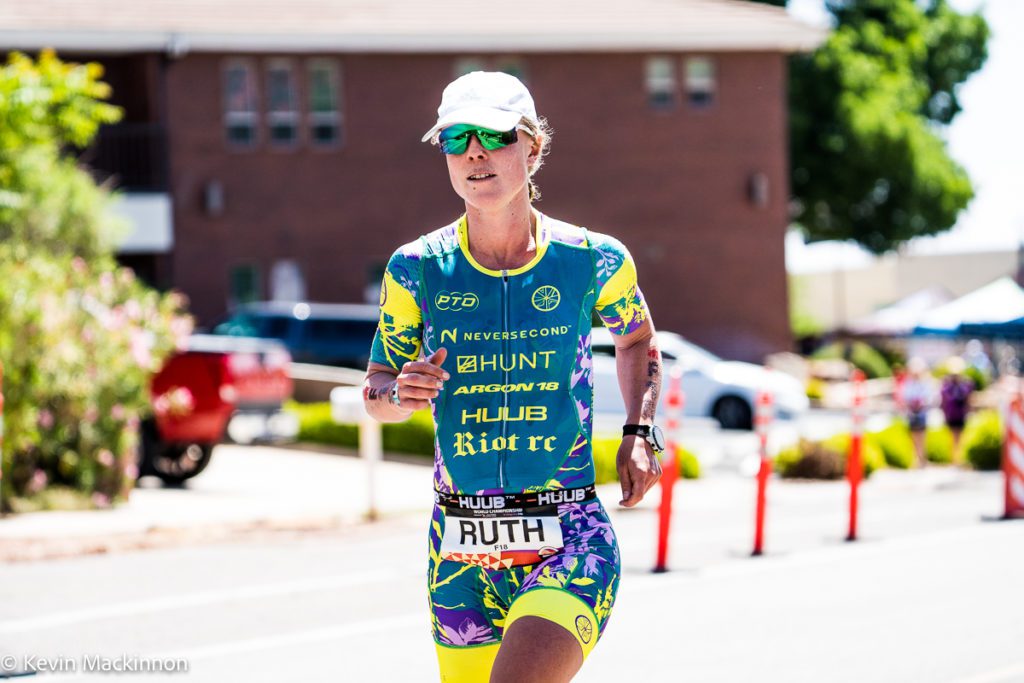Why we should care about the PTO’s new points system
Will this new ranking system see more big names race each other more often?
 Photo by:
PTO
Photo by:
PTO
It’s been a year in the making, but thanks to the hard work the Professional Triathletes Organisation (PTO) Athletes Rankings Committee – Canadian Jackson Laundry was part of the group that also included Ruth Astle (GBR), Antony Costes (FRA), Renee Kiley (AUS) and Danielle Lewis (USA), along with help from stats guru Thorsten Radde and the PTO’s Dylan McNiece – the PTO World Ranking system has been revamped.
Believe it or not, you actually care about this news. I’m not going to do too deep a dive into how the whole system works, but at the end of the day this new system is going to encourage the world’s best triathletes to race against each other more often. For triathlon fans around the world, that’s a big win.
While the new system wouldn’t have changed much in the men’s standings from last year, it would have had some pretty big repercussions for the women’s standings – the new system is now in place and moves Ashleigh Gentle (third in last year’s standings) to the top of the mix, while last year’s PTO World Ranking leader Anne Haug moves down to sixth.
Haug had a huge win at Challenge Roth last year, which garnered some major points, but Gentle captured the two PTO Open races (Canada and US) – each with a $1 million prize purse.
Remember the days when we’d never see the top athletes compete against each other until Kona or the 70.3 worlds? The new points system should drive the top athletes to compete against each other at big prize money races.

Why the change?
To put it simply, for the most part, pro triathletes hated the old system. In theory the concept was good – reward athletes for great performances regardless of who they were racing. Based to some extent on the strength of the field and the athletes finishing position, the system also took into account an “adjusted ideal time” for each course and an athletes performance in comparison to that. While that actually made a lot of sense during the pandemic, as we got to “real” racing over the last few years it didn’t seem to always reward the best performances. Suffice it to say that the algorithm-based stats drove many triathletes and fans nuts.
So, if the athletes were going to complain about it, it certainly makes sense that, as co-owners of the PTO, they should have some say in changing it.
“As an organisation co-owned by its athletes, it was important they took the lead in developing the new PTO World Ranking System, following unanimous feedback that the system needed to change,” said PTO CEO Sam Renouf. “We would like to especially thank the PTO Athlete Rankings Committee for all their ideas, energy and hard work over the last year, which I believe has got us to a much better place. An effective PTO World Ranking System is crucial to help us spotlight the sport’s superstars and create a season-long narrative for fans to follow.”
The new system follows four basic principles:
- A tiering system for races
- Rewarding race positions directly
- Consideration of the strength of field at each event; and
- Ensuring exceptional performances are rewarded based on finishing times compared to other athletes in the same race.
“Over the past 13 months the rankings committee have been working hard to come up with a system that met the core principles we felt were fundamental to the system – simple, transparent, objective and fair,” said Astle. “We explored a whole range of different systems to try and meet these criteria and I believe that the system we have ended up with will make it easier for athletes to know what points they can expect from a race, and for fans to understand how those points were awarded. It also rewards good racing at the most competitive events, which I think is fundamental in progressing our sport.”

Tiers and Race Position Score
I promised not to dig too deep into the new system (for those who want more info, click here), but I will try to run through those four principles.
A race’s “tier” is based on “prize money, availability of travel expenses and accommodation, payment of appearance fees, bonus programs, media exposure, live broadcast/ coverage and overall commitment to supporting professional athletes,” according to the PTO.
There are five tiers, starting with Diamond (over $500,000 in prize money) down to Bronze ($10,000 to $25,000 in prize money). The base “race position” score is based on the tier – 100 points for Diamond down to 70 for Bronze. The race position score is worth 40 per cent of the final ranking score at a race.
Full-distance races within the bottom three tiers (Bronze, Silver and Gold) can provide a five per cent bonus – this is to reward athletes who focus on full-distance events.
Strength of Field (SOF), Race Time Score
“A race’s final SOF Score is calculated based on the average ranking points of the top-five athletes who start the race (regardless of any eventual DNFs),” the PTO said in the World Ranking System “explainer.”
The strength of field score accounts for 30 per cent of the final ranking score.
“Race position and strength of field alone can’t truly evaluate an athlete’s performance on the day compared to the rest of the field,” the explainer continues. “By also factoring in athletes’ finishing times relative to their competition, there is a fairer spread of points befitting both exceptional performances at the pointy end of the race and slower times throughout the results sheet.”
That Race Time Score also contributes 30 per cent to the overall race score.
PTO World Ranking
An athletes PTO World Ranking is based on the average of their top three race scores over the last 52 weeks.
“In this way the PTO WRS rewards those athletes who perform well consistently at the biggest races with the toughest competition,” the PTO says.
